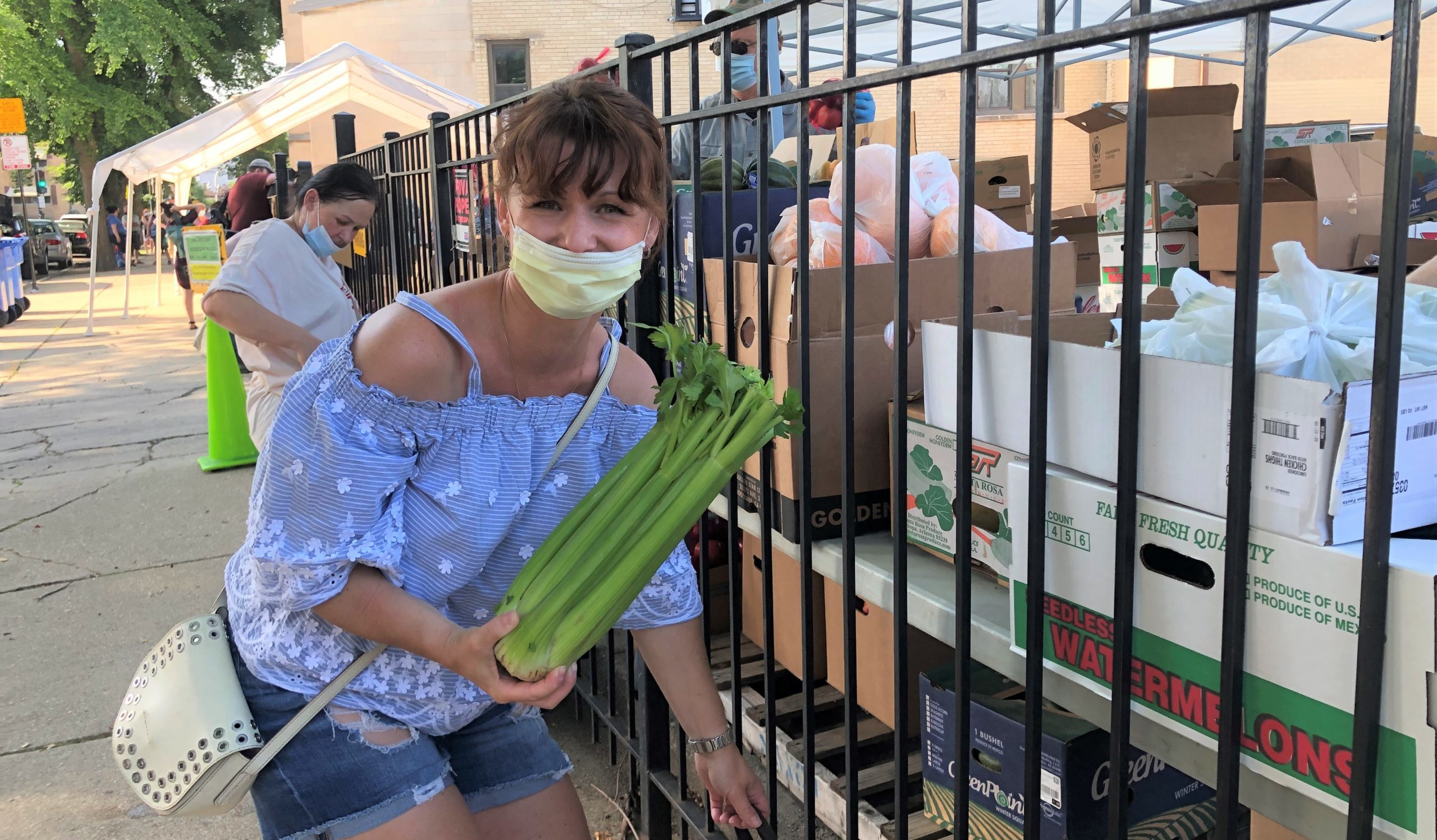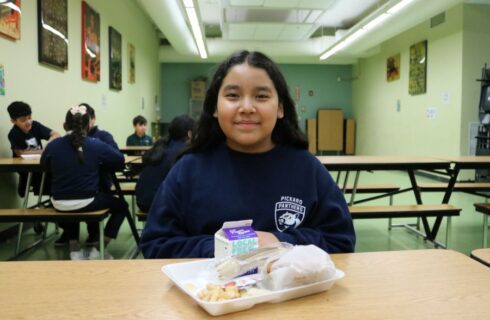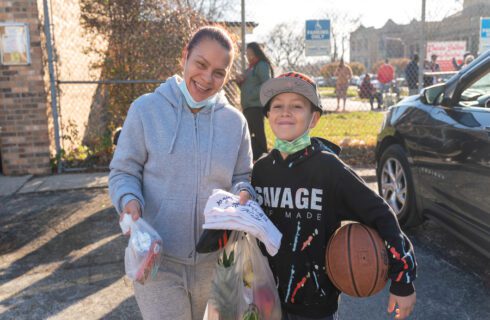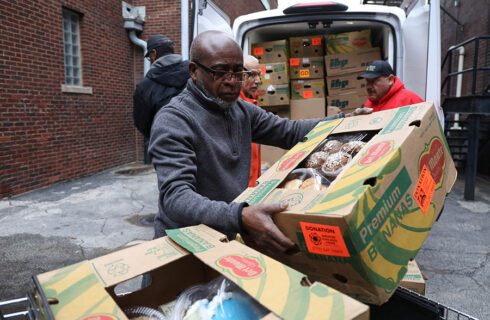Summer is typically the busiest season for Andrew Peters. He's worked as a bartender at Navy Pier for the past nine years.
But like millions of hospitality workers across the country, Peters was furloughed back in March as a result of the coronavirus pandemic.
Despite bars and restaurants slowly beginning to reopen, he and his girlfriend, who works at the same restaurant, still haven’t been able to return to their jobs.
“Because they’re only at 20% capacity, they didn’t bring all of us back,” he said.
During this time of uncertainty, the couple has been getting by with the help of unemployment benefits. To put food on the table, they were also recently approved for Supplemental Nutrition Assistance Program (SNAP) benefits, commonly known as food stamps.
And, for the first time, Peters has turned to local food pantries for support.
On a muggy July evening, while waiting in line for the Joined Hands Food Pantry in Portage Park, the 32-year-old Albany Park resident said he didn’t know much at all about food assistance before the pandemic. It was his first visit to Joined Hands, a Food Depository partner that serves out of the St. John Lutheran Church and School on the city’s Northwest Side.
At first, he admits, he was shy about accepting help. But he’s come to appreciate the fresh produce, meat, and other offerings his household receives from the pantry.
“It’s helping,” he said. “That’s why we’re able to pay bills. We’re not using the money for food now.”
‘The need is greater than we could’ve ever guessed’
Peters is one of many first-time pantry visitors in Chicago since the pandemic left adults out of work and children out of school. The Joined Hands pantry, which served about 120 households each week before the pandemic, has seen its numbers to swell to more than 200 families on some weeks during the ongoing crisis.
The line for food now stretches down North Lavergne Avenue and hooks down West Montrose, with visitors moving between pieces of tape spaced six feet apart on the sidewalk. Some neighbors begin waiting as early as 10 a.m. for the 5 p.m. distribution.
“The need is greater than we could’ve ever guessed,” said pantry coordinator Rick Paulsen.
Paulsen, who has run the pantry for the last 11 years, has had to make his own adjustments to continue overseeing operations. Because his daughter is considered high-risk, he limits his contact with pantry guests and volunteers. From a safe distance, near the end of the distribution line, he is still able to greet passersby.

Coordinator Rick Paulsen, pictured with his daughter Erica
It’s been difficult to adjust to the new normal, Paulsen said. The days of pairing fresh food with pats on the back and in-depth conversations won’t return anytime soon. Nonetheless, Paulsen is grateful to be feeding people. Back in mid-March, when St. John’s closed in accordance with the state’s stay-at-home order, Joined Hands was forced to close its doors for a few weeks. It was its first closure in recent memory.
“It was heartwrenching,” Paulsen said, recalling how the temporary closure brought tears to his eyes.
Knowing that the need was continuing to grow, he decided to move the pantry outdoors. Masked volunteers serve the guests’ choice of fresh groceries from a safe distance behind a metal gate around the school’s parking lot.
“When people leave here, they don’t have to worry about food,” he said. “There’s a nice variety, and there’s plenty of it.”
The food has become a stress-reliever for Dominika Bolkowska and her family. Bolkowska, 43, still has her job as a lab technician at a city hospital where she runs medical tests, including those for COVID-19. However, the pandemic halted her husband’s towing business. He stays home now and cares for their two sons, ages 10 and 11.
With the recent transition to a one-income household, the food she receives from Joined Hands – especially the fresh produce and meat – significantly cuts down on their grocery bill.
“(Before), it was $200 to $300 a week for food,” she said. “Now, I can put that on the account for the mortgage, for the car payment.”
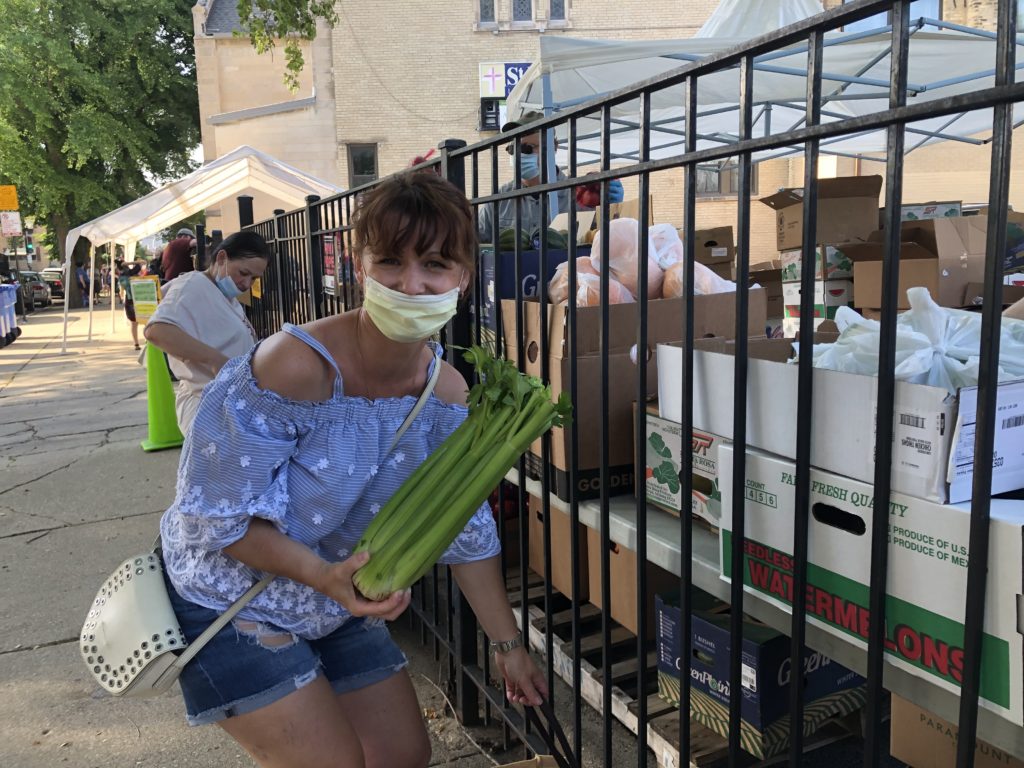
Dominika Bolkowska receives fresh produce from a volunteer at the Joined Hands pantry.
‘They take care of me and my kids’
The changes to daily life have caused Marcos Buestas’ three kids – ages 6, 9 and 10 – to experience a range of emotions. Some days they’re angry, he said. Other days they’re depressed.
“They want to see their teachers, friends, they want to be active,” he said.
Plenty has changed for Buestas as well. Before the pandemic, he was working full-time at a grocery store. He left that job, he said, in part because he has asthma and was afraid of catching the virus.
He found a new job at a warehouse, but it’s only part-time. His wife has had to start working as well.
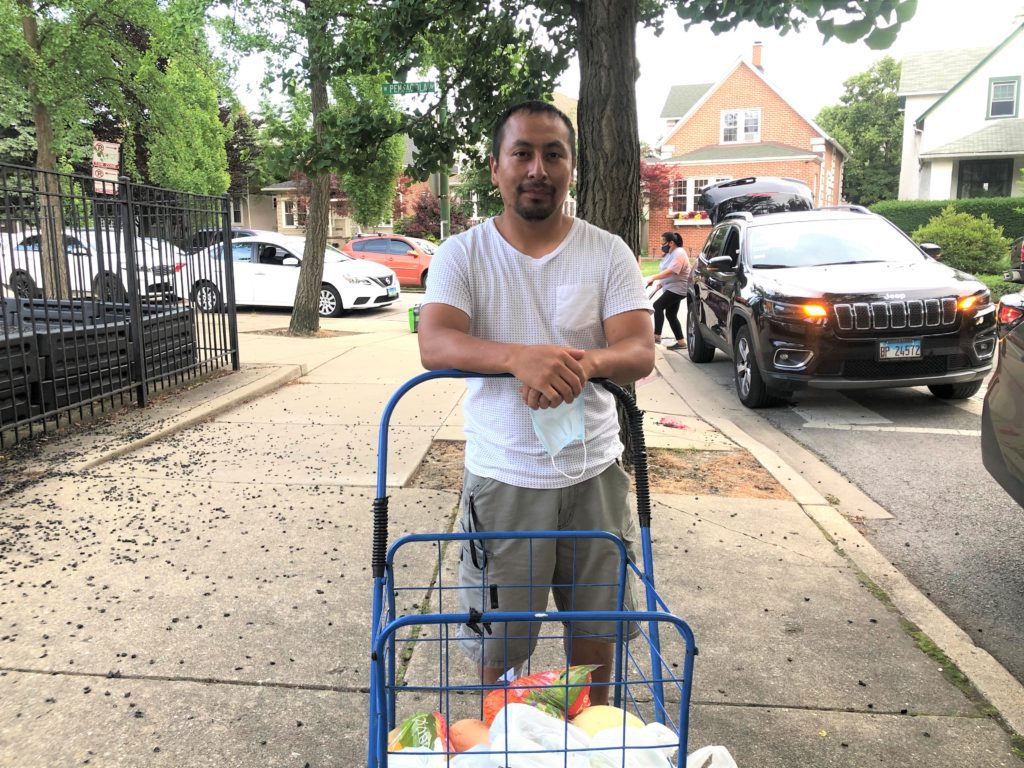
Marcos Buestas at the Joined Hands food pantry in Portage Park
Food can be expensive for the family of five, especially fruits and vegetables. Whatever he can pick up at Joined Hands, he said, mostly goes toward feeding his children.
“They take care of me and my kids," Buestas said. “I’m just so happy.”
Share This Post

